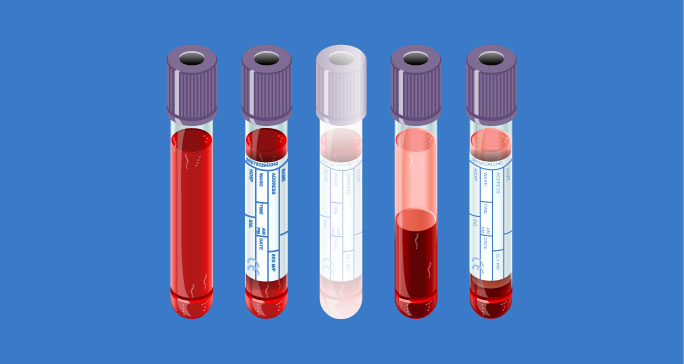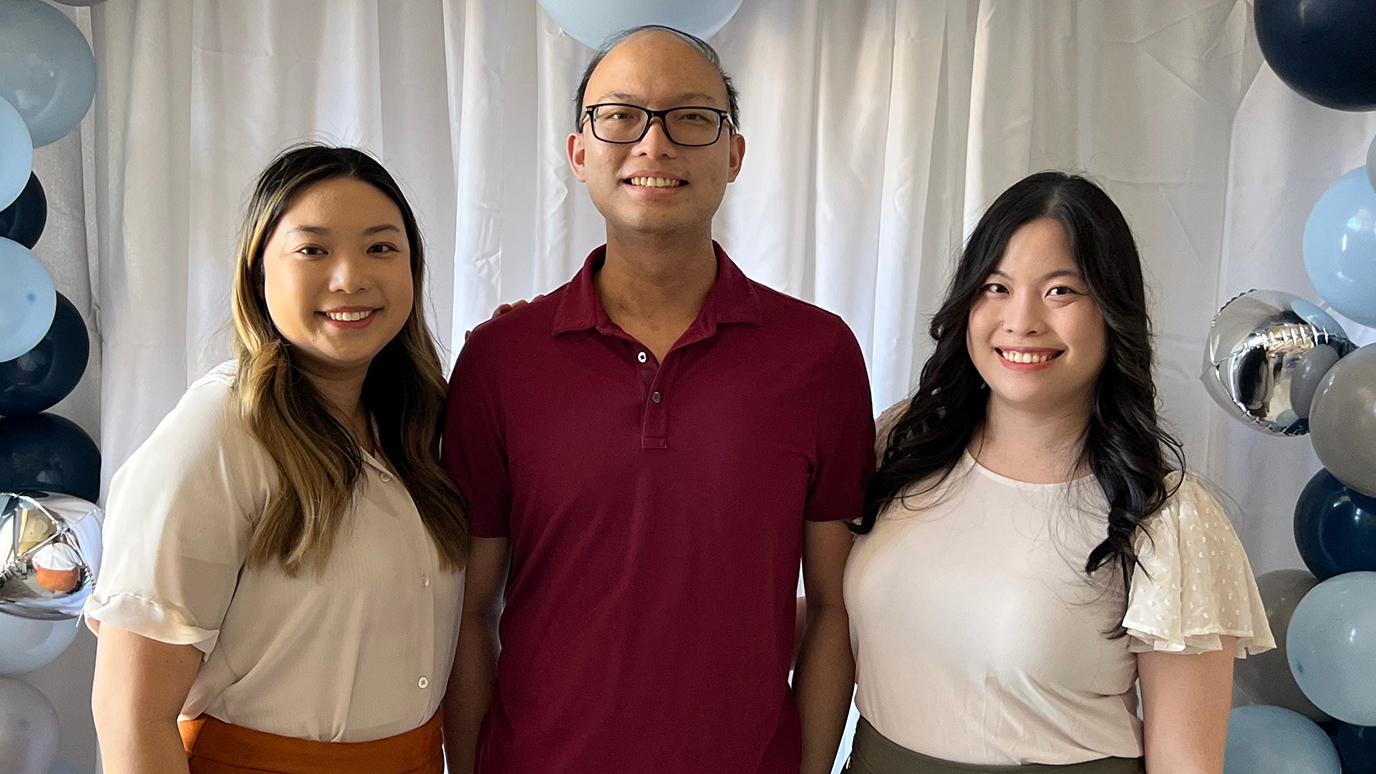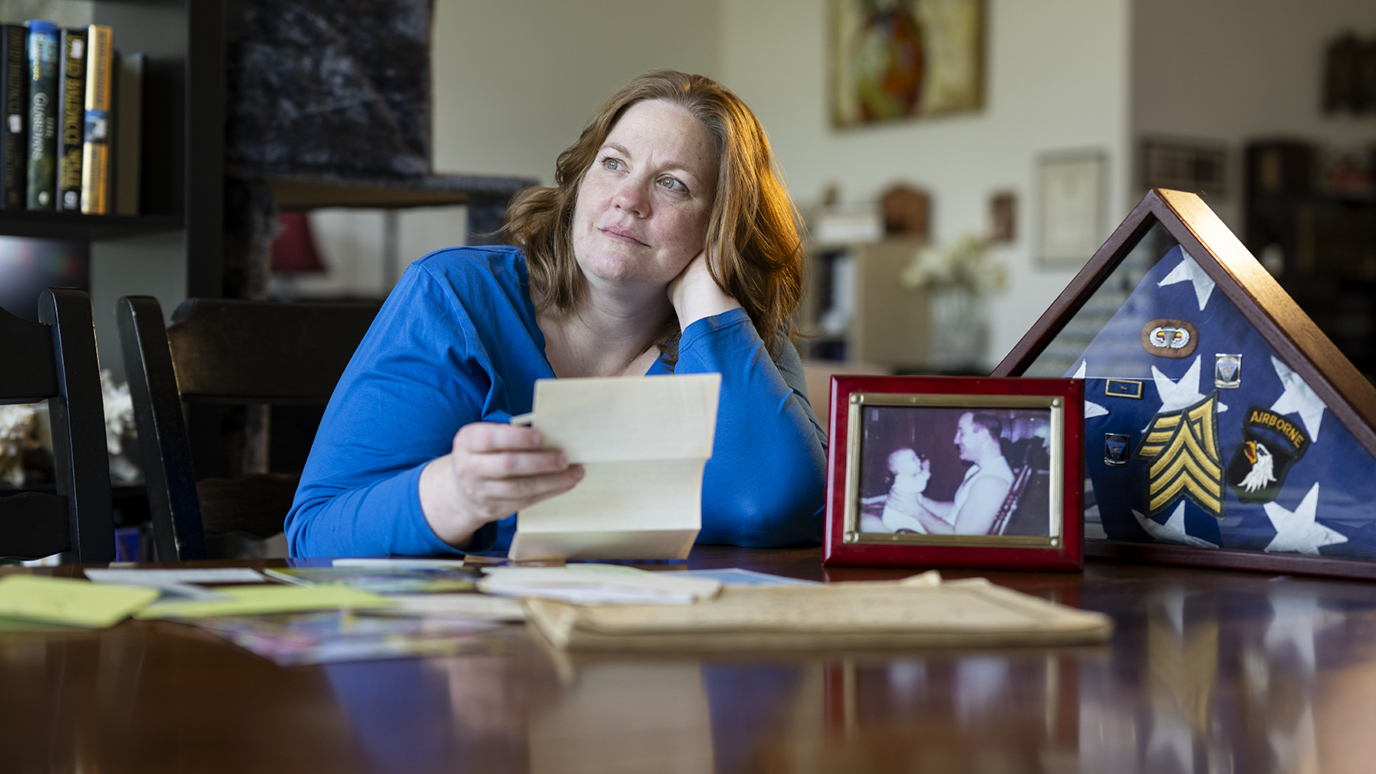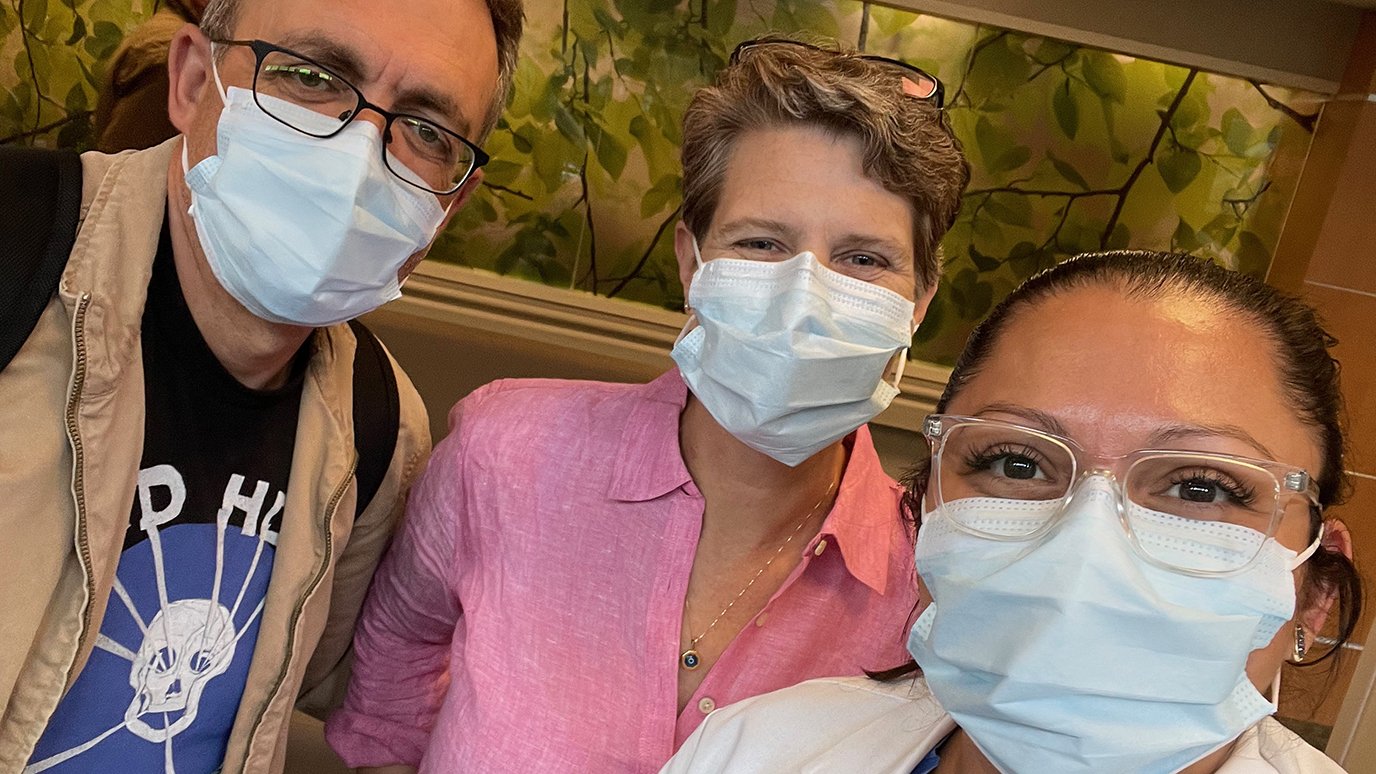Leukemia patient returns home after COVID-19
- Diseases
- Acoustic Neuroma (14)
- Adrenal Gland Tumor (24)
- Anal Cancer (66)
- Anemia (2)
- Appendix Cancer (16)
- Bile Duct Cancer (26)
- Bladder Cancer (68)
- Brain Metastases (28)
- Brain Tumor (230)
- Breast Cancer (718)
- Breast Implant-Associated Anaplastic Large Cell Lymphoma (2)
- Cancer of Unknown Primary (4)
- Carcinoid Tumor (8)
- Cervical Cancer (154)
- Colon Cancer (164)
- Colorectal Cancer (110)
- Endocrine Tumor (4)
- Esophageal Cancer (42)
- Eye Cancer (36)
- Fallopian Tube Cancer (6)
- Germ Cell Tumor (4)
- Gestational Trophoblastic Disease (2)
- Head and Neck Cancer (6)
- Kidney Cancer (126)
- Leukemia (344)
- Liver Cancer (50)
- Lung Cancer (288)
- Lymphoma (284)
- Mesothelioma (14)
- Metastasis (30)
- Multiple Myeloma (98)
- Myelodysplastic Syndrome (60)
- Myeloproliferative Neoplasm (4)
- Neuroendocrine Tumors (16)
- Oral Cancer (100)
- Ovarian Cancer (170)
- Pancreatic Cancer (164)
- Parathyroid Disease (2)
- Penile Cancer (14)
- Pituitary Tumor (6)
- Prostate Cancer (144)
- Rectal Cancer (58)
- Renal Medullary Carcinoma (6)
- Salivary Gland Cancer (14)
- Sarcoma (236)
- Skin Cancer (296)
- Skull Base Tumors (56)
- Spinal Tumor (12)
- Stomach Cancer (60)
- Testicular Cancer (28)
- Throat Cancer (90)
- Thymoma (6)
- Thyroid Cancer (98)
- Tonsil Cancer (30)
- Uterine Cancer (78)
- Vaginal Cancer (14)
- Vulvar Cancer (18)
- Cancer Topic
- Adolescent and Young Adult Cancer Issues (20)
- Advance Care Planning (10)
- Biostatistics (2)
- Blood Donation (18)
- Bone Health (8)
- COVID-19 (362)
- Cancer Recurrence (120)
- Childhood Cancer Issues (120)
- Clinical Trials (628)
- Complementary Integrative Medicine (24)
- Cytogenetics (2)
- DNA Methylation (4)
- Diagnosis (230)
- Epigenetics (6)
- Fertility (64)
- Follow-up Guidelines (2)
- Health Disparities (14)
- Hereditary Cancer Syndromes (124)
- Immunology (18)
- Li-Fraumeni Syndrome (8)
- Mental Health (118)
- Molecular Diagnostics (8)
- Pain Management (62)
- Palliative Care (8)
- Pathology (10)
- Physical Therapy (18)
- Pregnancy (18)
- Prevention (898)
- Research (392)
- Second Opinion (74)
- Sexuality (16)
- Side Effects (604)
- Sleep Disorders (10)
- Stem Cell Transplantation Cellular Therapy (216)
- Support (404)
- Survivorship (322)
- Symptoms (184)
- Treatment (1776)
Leukemia survivor after COVID-19 recovery: ‘There’s always something to fight for’
3 minute read | Published April 27, 2020
Medically Reviewed | Last reviewed by an MD Anderson Cancer Center medical professional on April 27, 2020
Mary Hernandez didn’t realize how sick she was when she came to the MD Anderson Emergency Center on March 30. The 41-year-old was still reeling from the chronic lymphocytic leukemia diagnosis she’d received just a month earlier from Jan Burger, M.D., Ph.D.
Then, she discovered she had COVID-19-related pneumonia, a respiratory infection caused by the novel coronavirus.
“I don’t think I really took it all in,” she says. “I just remember being scared. I was treating the symptoms at home. But I would’ve come in much sooner if I’d known.”
Now, after almost 30 days in the hospital — 17 of them spent on a ventilator — Mary is being discharged home. She has recovered and is eager to reconnect with her family.
“It was a very long journey, and I still have a ways to go,” she says. “But I am making excellent strides. I feel ready. And I’m excited to see my kids.”
COVID-19 treatment was a team effort
For Robert Wegner, M.D., an anesthesiologist who specializes in critical care medicine, the fact that Mary is leaving MD Anderson at all is a small miracle.
“She was already in respiratory failure and septic shock," says Wegner. "But we gave her the maximum dose of anti-inflammatory agents and did everything short of putting her on a heart and lung machine to save her life.”
Wegner, John Crommet, M.D., and Raja Reddi, M.D., also put Mary on a ventilator at the highest possible setting. They weaned her off as her lungs slowly recovered.
“We are all so pleased with Mary’s progress,” Wegner says. “We just took it one system at a time, using the organ-based approach, and made adjustments to her care every day. This was a true team effort between ICU, anesthesia, pulmonology, internal medicine and infectious disease specialists.”
Nurse on COVID-19 patient’s recovery: ‘We both started crying’
Ketcia Simmons, a registered nurse on MD Anderson’s COVID-19 unit, agrees.
Simmons and her fellow nurses did everything they could to help Mary feel comfortable and supported, including writing encouraging messages with dry erase markers on her window. Nurse Martin Coward coordinated a FaceTime call between Mary and her daughter, too, so they could stay connected even before Mary could use an iPad on her own.
Simmons began rooting even harder for Mary when she learned that they had many things in common.
“The kicker for me was that we’re the same age,” Simmons says. “Mary dotes on her three children the same way I do my son. So, when she started coming off the sedation and could hear me, I told her she had to keep fighting and that I was praying for her. We both started crying when I came back on duty last week and saw she was off the ventilator. I wanted her to make it.”
Early diagnosis a possible factor in coronavirus recovery
The fact that Mary hadn’t yet started cancer treatment may well have contributed to her recovery.
Oncologists often recommend “watchful waiting” for patients with early stage chronic lymphocytic leukemia, as studies have shown no benefit to starting treatment until symptoms have reached a certain set point. Mary’s cancer was caught at the earliest possible stage, so that’s what her care team recommended.
“It was sad that she got sick so fast and so young,” says Wegner. “But that may have been one of the reasons she was able to pull through. She hadn’t started leukemia treatment yet, so she didn’t have any side effects or other organ problems to deal with.”
“Mary has a lot to live for,” adds Crommett. “The entire team has been pulling for her. We can’t wait to see her walk out of here and back to her life.”
Life after COVID-19
Even as Mary returns home, she continues to regain her strength and rebuild her endurance. But she feels grateful to her doctors and nurses at MD Anderson for her life.
“It’s going to be bittersweet not to see them anymore, because the care I have gotten from them is just wonderful,” Mary says. “But, I thank God I made it. It was hard, but you have to keep fighting. Because there’s always something to fight for.”
Learn how MD Anderson is responding to the COVID-19 pandemic.
Related Cancerwise Stories

This was a true team effort.
Robert Wegner, M.D.
Physician






